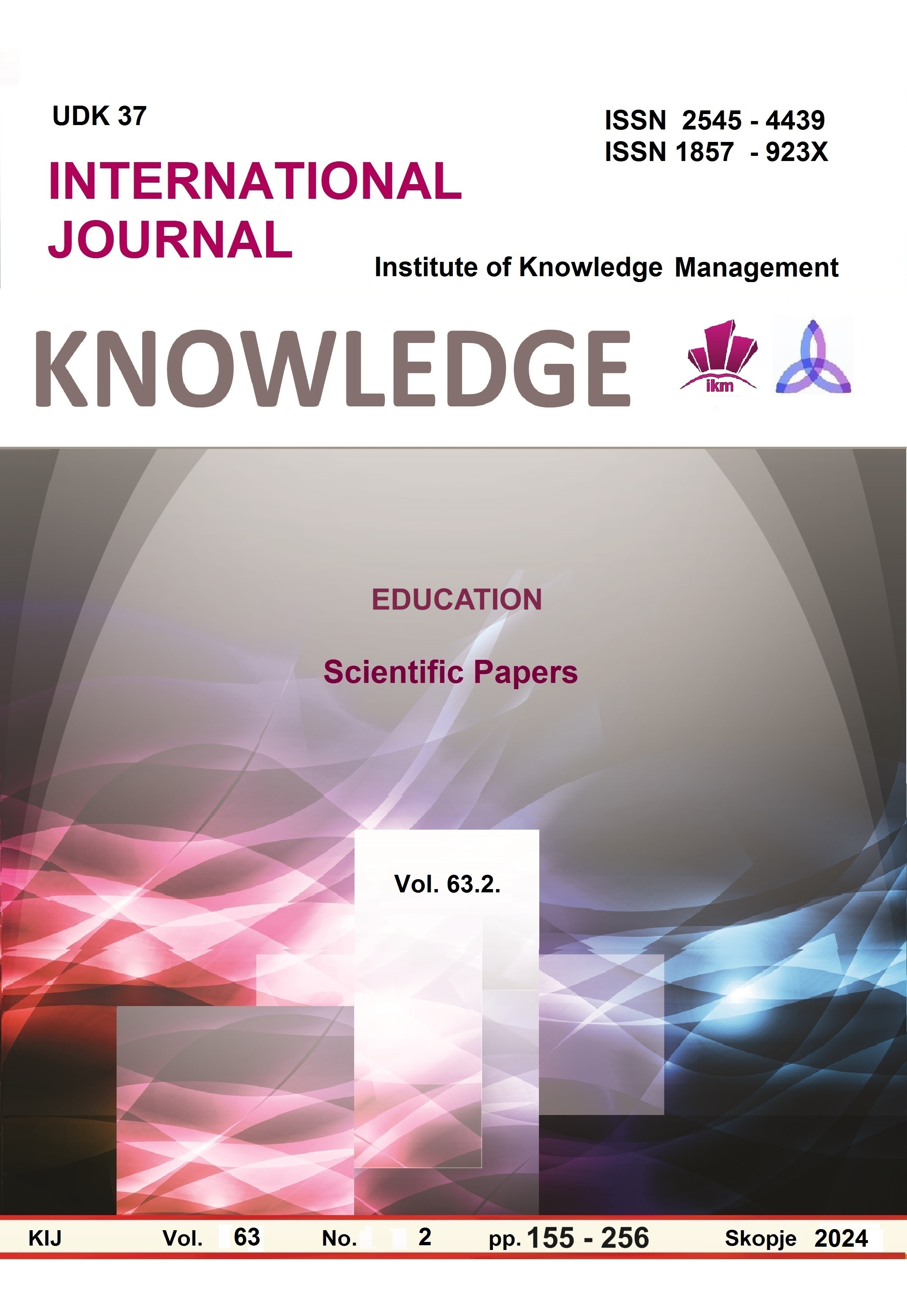ДЕТСКАТА ГРАДИНА КАТО СОЦИАЛНА И ОБРАЗОВАТЕЛНА ИНСТИТУЦИЯ
KINDERGARTENS AS A SOCIAL AND EDUCATIONAL INSTITUTIONS
Author(s): Petrana StoykovaSubject(s): Social Sciences, Education
Published by: Scientific Institute of Management and Knowledge
Keywords: Bulgaria;education;socialization;kindergarten
Summary/Abstract: The article examines the importance of preschool education in Bulgaria, which is provided in kindergartens. The objectives of preschool and school education and the crucial role of kindergarten in child development are briefly presented. The advantages and disadvantages of education in kindergartens are systematized based on the opinions of parents published in 2010 on a well-known Bulgarian website (a content analysis is used). The results of a non-representative quantitative survey on the topic “Kindergarten as a social and educational institution” conducted in 2022 among parents of children attending kindergartens in Simitli municipality (the sample size is 60 people) are analyzed. This survey is valuable for the analysis due to the demographical profile of respondents – almost all women (97,7%), the majority of them have Roma origin (53,5%) and low degree of completed education (only 2,3% have a university degree). The 2020-2024 Strategy of the Kindergarten “First of June” in Sandanski, Strategy 2020-2024 of kindergarten “Little Sun” in Svishtov and Strategy 2020-2024 of Kindergarten №11 “Little Bell” in Targovishte, wеre also used to outline the challenges facing preschool education. The most important finding is that parents understand how crucial kindergartens are for children’s development. To the question “for” or “against” the kindergarten, which was posted in the forum “BG-Mamma” (https://www.bg-mamma.com/), 78,7% of the respondents said they were in favor of it, 14% said they were against it, and 7,3% indicated the answer “cannot judge”. According to the results of the non-representative quantitative survey show that 77,2% of the respondents agreed that 4-year-olds’ attendance at kindergarten should be compulsory. These data are also confirmed by the responses to the question “What are the three main reasons your child should attend kindergarten?”, to which only 2,3% of respondents indicated the answer “I prefer my child not to attend kindergarten”. Kindergarten plays a critical part in a child’s physical, emotional, intellectual, spiritual, moral, and social development. The digital era, however, leads to inevitable changes in the sphere of educational raising. There are several obstacles in the way of children’s education and socialization. Kindergartens are changing their social role, expectations for teachers are increasing, and parents are becoming an increasingly important educational phenomenon. Kindergarten helps the personal development of children, their rapid inclusion in school life and their successful social integration.
Journal: Knowledge - International Journal
- Issue Year: 63/2024
- Issue No: 2
- Page Range: 215-221
- Page Count: 7
- Language: Bulgarian

